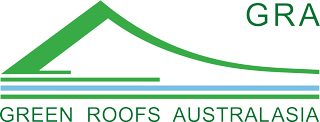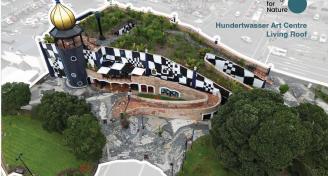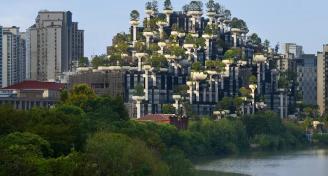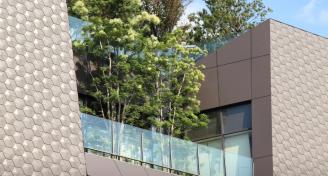ISRAEL living walls
Sensor-controlled smart planters allow building owners to place hundreds of plants up and down a wall, indoors or outdoors - increasing tenancy & improving value.
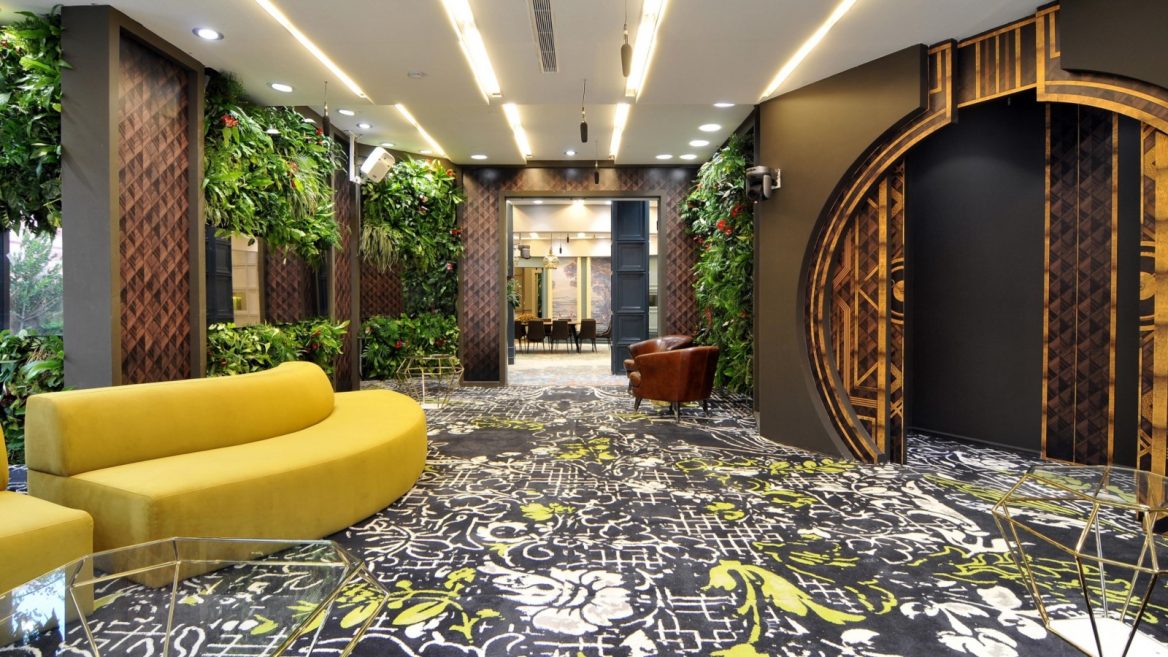
Plants work their magic by transforming carbon dioxide (CO2) into oxygen via photosynthesis. Installing a Vertical Field living biofilter in your home or office can remove about 95 percent of the pollutants in a building, the company claims.
Vertical Field’s green walls are not static. Sophisticated sensors measure fluctuating air quality in the building, while cameras track how many people are in a roombumping up the amount of CO2.
When the CO2 level goes above a certain threshold, Vertical Field can “manipulate the plants in an active way,” Elitzur says, by adding precise amounts of water, fertilizer and other nutrients through drip irrigation into the planters’ soil in order to increase absorption of CO2 and other allergens.
The result is “a wall that reacts to the indoor environment,” Elitzur explains. “It’s not just for beauty” — although a vertical wall of plants is that, too.
A typical Vertical Field installation contains between five and 15 types of plants. Software and big data drive the system’s customization.
“We have a characterization for each type of plant – its soil needs, the vitamins it requires to be more efficient, plus data coming from outdoors,” Elitzur notes. “This creates the best growing program for each specific plant.”
A vertical forest on the exterior of a building creates a protective ecological shell. Photo courtesy of Vertical Field
Vertical Field also installs “vertical forests” on the exterior of buildings. Israeli cybersecurity leader Check Point, for example, has a green wall outside floors 12 to 15 of its Tel Aviv offices.
Elitzur says the vertical forest creates an ecological shell that protects the building against direct radiation from the sun and enables a more stable internal temperature with less artificial cooling.
The cost for installing a vertical green wall starts “from a couple of thousand shekels per square meter,”. The outdoor ones “are less sophisticated so they cost a bit less.”
Urban farming
Purifying air and insulating buildings is only part of the Vertical Field story. The company also specializes in urban farming: a green wall growing lettuce and other leafy greens.
One such customer isTel Aviv chef restaurant L28, whichgrows organic pesticide-free vegetables in a vertical farm on the building’s roof.
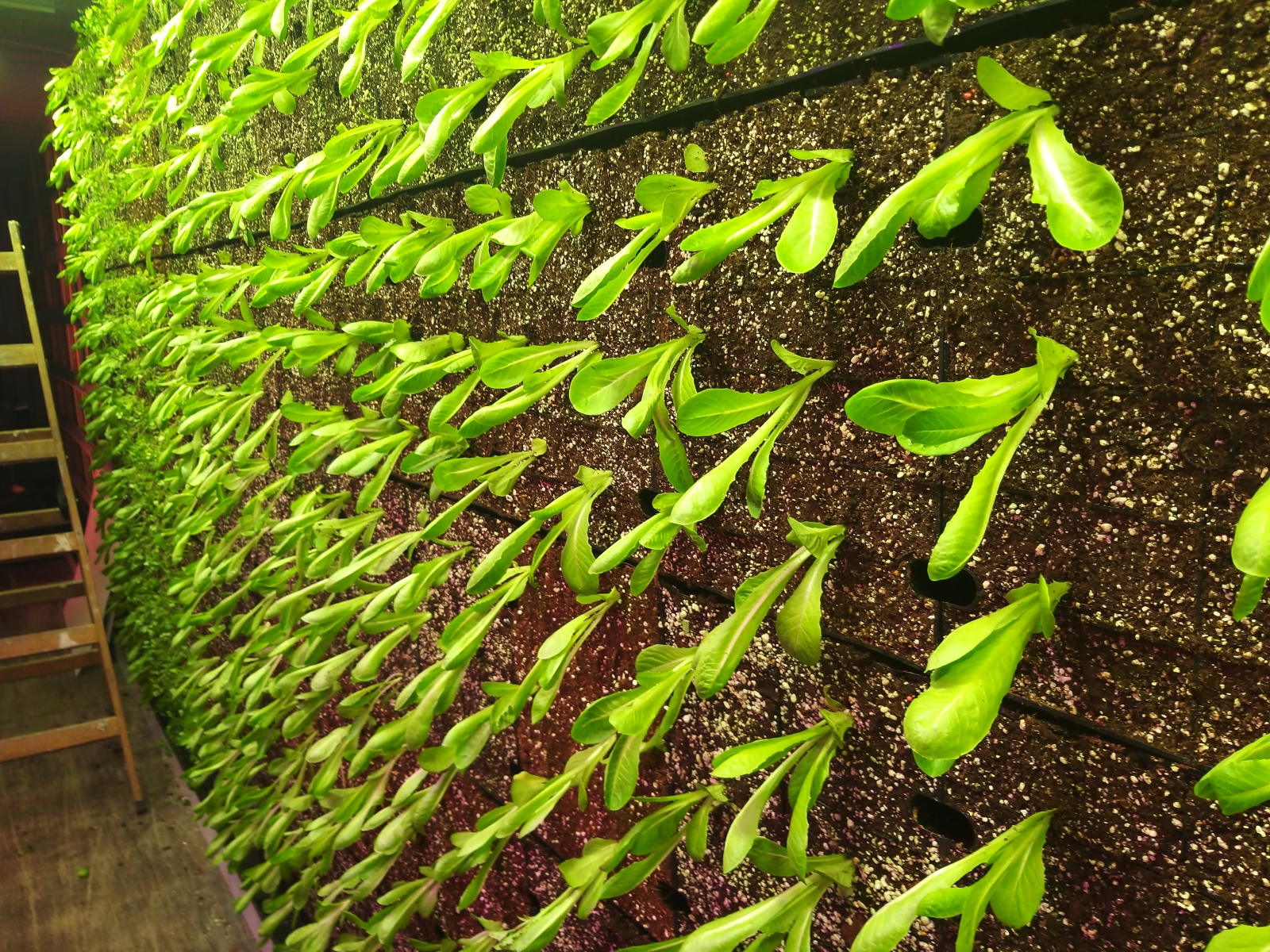
A vertical wall growing edible greens. Photo courtesy of Vertical Field
In New York, Vertical Field has a project installed “in a shipping container in the parking lot of a hotel and another one at a senior living facility,” Elitzur says. In the latter, the seniors take an active part in planting and harvesting.
Farming on the roof of a supermarket
An urban farm on the roof of a supermarket could provide the store’s customers fresher produce with no carbon footprint since the vegetables do not have to be trucked in from a far-off farm.
IN ISRAEL, Vertical Field is not alone in offering vertical farming and green walls. Other companies include Germany-based InFarm, Freight Farm (which specializes in container farming) and Florida-based Live Wall and GSky. The latter is the biggest of the bunch with more than 800 green walls installed in 19 countries.
